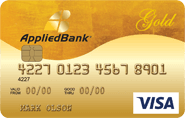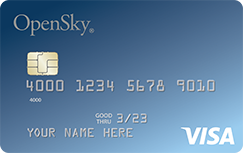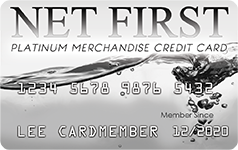Don’t be that friend who missed out on a sweet sign-up bonus!
So, you’ve got your shiny new rewards credit cards and are anxiously awaiting some nice sign-up bonuses that you can use to book a sweet award ticket in first class to [insert awesome destination] where you’ll be staying at [insert 5-star hotel] while you [insert something cool] every day for 10 days. But, you’ve got 90 days to spend $5,000 on one card and $3,000 on the other. Sound familiar? We’ve been there, too!
In this post...
Meet that minimum spend
One of the biggest mistakes you can make with credit card rewards is to miss out on a sign-up bonus because you simply failed to hit your minimum spending requirement. You’ve still got some great perks and bonus categories to earn more points/miles in, but missing a sign-up bonus is a huge missed opportunity.
Fortunately, we’ve compiled a list of some of the easiest ways to help meet your minimum spending requirement without having to go out and make large purchases or carry unnecessary balances that can end up costing you more in the long run. Your mileage may vary, of course, so make sure anything you choose to do aligns with your financial objectives and doesn’t add any unnecessary interest payments or excessively high fees to your finances.
Pro Tip: Plan Ahead!
If you’re upgrading your computer, getting a new iPhone, or buying a sweet new carbon fiber road bike, plan these purchases around the arrival of your shiny new credit card.
Everyday & recurring expenses
Some of the items below may be one of the bonus categories on your card, in which case you have no excuse!
Groceries – not only is this something you’d be buying anyway, but there are a few cards out there that offer anywhere from 3x – 6x bonuses at US supermarkets.
Gas – ditch that Shell-branded credit card or your debit card and start using your gas rewards credit card.
Insurance – car insurance, homeowners insurance, health insurance, renters insurance — whatever it is, you know it’s a monthly item and often you can pay for these products without incurring any additional fees. Pro tip: you can sometimes pre-pay your premiums, so why not pay it for the whole year or the next six months?
Tolls – if your commute to work involves crossing bridges or going through tolls with E-Z Pass, FasTrak, Good2Go, and so on, then you should link your rewards credit card to your toll account — these can add up quickly!
Transit – for those who live in cities with good transportation systems, simply add your new card to the payment card for your metro/subway/bus pass.
Amazon – you probably buy a bunch of household staples here like everyone else these days, so why not buy an Amazon gift card that you’ll end up using over the next year anyway?
Restaurants & cafes – if you don’t already have a dining rewards credit card then you need one ASAP! Regardless, dining out should always go on your card if you’re trying to meet a minimum spend requirement.
Utility bills – use your credit card to pay your electricity, water, gas, etc. bills.
Telecom: cellphone, cable, internet – often overlooked items that cost many people upwards of $100/month each.
Hulu, Netflix, Amazon Prime, HBO Go, etc. – whatever online streaming services you use, add your new card to the billing for your monthly fees.
Tuition – some schools let you pay some or all of your tuition on credit card, so this is worth checking into if you’re either enrolled or have children who are enrolled.
Gym & Spa – any memberships of this type should be moved to the cards where you need to meet minimum spending requirements.
Doctor, dentist, prescriptions – any out of pocket medical or dental expenses should go on your cards.
Door Dash, Caviar, Uber Eats, Uber, Lyft, etc. – update your payment source on these services to your new rewards credit cards.
Home repairs – for these it might be worth buying Home Depot gift cards at a grocery store or office supply store if your card has either of those listed as a bonus category.
Daycare – check and see if they take plastic, and if they do then you’re in business.
Storage – renting a storage space? Put these charges on your new card, and consider paying in advance.
Gift cards
Everyone knows you can often buy gift cards at grocery stores, office supply stores, and drugstores (some of these purchases can even earn category bonuses!), but here are some ideas for efficiently meeting your minimum spend. Note: some credit card issuers will charge cash advance fees for gift card purchases, depending on where you purchase these gift cards (generally not at places like grocery or office supply stores). Check with your credit card issuer for clarification before buying gift cards, as cash advance fees are often quite high.
American Express and Visa gift cards – these types of gift cards will have an activation fee of $5 or possibly more, so you’ll want to get as high of a dollar value gift card as possible so your effective cost per point is low. The nice thing about these cards is they can be used for almost anything in the future.
Restaurant gift cards – we all love Chili’s don’t we?! If not, you’re sure to find a restaurant you do dine out at, so pre-pay for a meal or two with some gift cards.
Gas gift cards – yep, you can get gift cards to use at some gas stations.
Store gift cards – if you shop at certain chain stores often, it may be worthwhile to pick up a few gift cards for future purchases. Amazon.com has a pretty good selection!
Earn points while feeling good
Donate to charity – we know it’s on your list for this year anyway, so go ahead and make that donation now. The most common charities accept credit cards, so pick one that aligns with your values and go for it! As a bonus, eligible charitable donations are tax-deductible.
P2P crowdfunded lending – loan as little as $25 to help someone start a business, go to school, or just make their community a better place on Kiva.
Give gifts – whether it’s a birthday, wedding, housewarming, or just a “you’re an awesome friend” gift, use your rewards credit card when you make the purchase, and consider making the purchase in advance — who says you need to wait 6 months to buy someone a birthday gift? Depending on the store you might even earn a category bonus!
Buy dinner – out for dinner with friends? Offer to pay on your card and collect cash from everyone else, or, if you’re super generous, buy everyone dinner!
Group trip upcoming? Offer to book hotel or airfare for others and have them pay you back with cash, check, or via one of the online payment services listed below.
Not-so-everyday spend
Getting married? As many of your wedding expenses as possible should go on your rewards credit cards!
Remodeling? Most materials suppliers take credit cards, and your contractor(s) may also accept them, so swipe away…
Buying a car? Whether you’re financing, leasing, or paying cash, many dealerships will allow you to pay a portion of the purchases price with a credit card (typically not more than $2,000 – $3,000).
Opening a new bank account? – Some banks allow you to make your initial deposit via credit card, so this could be worth considering if you’re already looking to open a new checking account. Some banks even offer sign-up bonuses for funding new accounts!
Pro Tip: Split Transactions
Split your big transactions between 2-3 cards — if you’re trying to make minimum spend on multiple cards then you can request to split the transaction between two or more credit cards. This won’t happen 100% of the time, but we’ve had success with anything from groceries to computers.
Some ways that may charge a fee
The items below may charge a merchant or service fee of somewhere around 2-3% of the transaction, so your effective cost per point will be that percentage divided by the number of points you’ll earn. This can sometimes seem high, but if it’s helping you get a signup bonus then it may be worthwhile.
Mortgage payments – yep, you can pay your mortgage via credit card by using a service like Plastiq, though these 2.5% fees can add up.
Vendor payments – again, these might be items you’d normally be required to pay for with a check, but Plastiq will allow you to pay these bills with your credit card.
Car payments – same as the above. Sensing a theme here? 🙂
Taxes – why not pay your taxes with a credit card? The IRS maintains a list of processors right here. State and local taxes may also be paid via credit card, but you’ll need to check with your local tax authority on that.
Student loans – Plastiq can help you out here as well, or contact your loan company to see if there might be other options.
Pay your rent – if your landlord doesn’t have a way for you to pay your rent with a credit card directly, you can check out Plastiq (2.5% fee) or RadPad (2.99% fee) for paying your rent via credit card.
Pre-pay HOA dues – check with your HOA to see if this is possible, as it often is a way to get a good amount of minimum spend completed.
Electronic payment services
PayPal – the 800lb gorilla in the online payments space, PayPal charges a 2.9% fee (+ $0.30 per transaction) to send money via credit card.
Venmo – love it or hate it, Venmo is a convenient way to send money to/from friends, and you can deposit money via credit cards with a 3% fee.
Amazon.com Payments – not highly publicized, but Amazon has a payments system which allows you to send money to friends, up to $1,000 per month on credit cards.
Apple Pay Cash – it charges a 3% fee, but you can pay friends and family with Apple Pay Cash via a credit card (there is no fee for using debit cards).
Square’s Cash App – another app and web-based payments platform that allows you to send money to friends.
It’s all business
Travel expense reimbursement – if your corporate travel policy allows it (this is key!), put your business travel expenses on your card and get reimbursed after the trip.
Everyday business expenses – much like the items noted above for personal spend, many small business cards will give you a category bonus for these categories. After all, isn’t that what these cards are designed for?
Online advertising – some cards give you a 2-3x bonus on online marketing spend, so why not run an ad campaign to see if you can bring in some new customers?
Employee gifts/bonuses – nothing says job well done quite like an American Express gift card or two.
Professional memberships – Services like LinkedIn charge monthly, odds are these are already on a credit card, but a minimum spend period is a great time to check if you’re up for renewal.
Have any tips of your own?
Let us know in the comments below, and we’ll continually add the best ones to this list!
Chase Sapphire Preferred® Card
With a 60,000 point new cardmember bonus when you spend $4,000 in the first 3 months of having the card, plus 2x points on travel and at U.S. restaurants — all for a $95 annual fee — this card is one of the top rewards card values available. Chase points are transferable to 9 airlines and 4 hotels, giving you the option of booking directly via these loyalty programs for some massively lucrative award redemptions in first & business class or at 5-star luxury hotels & resorts.
















